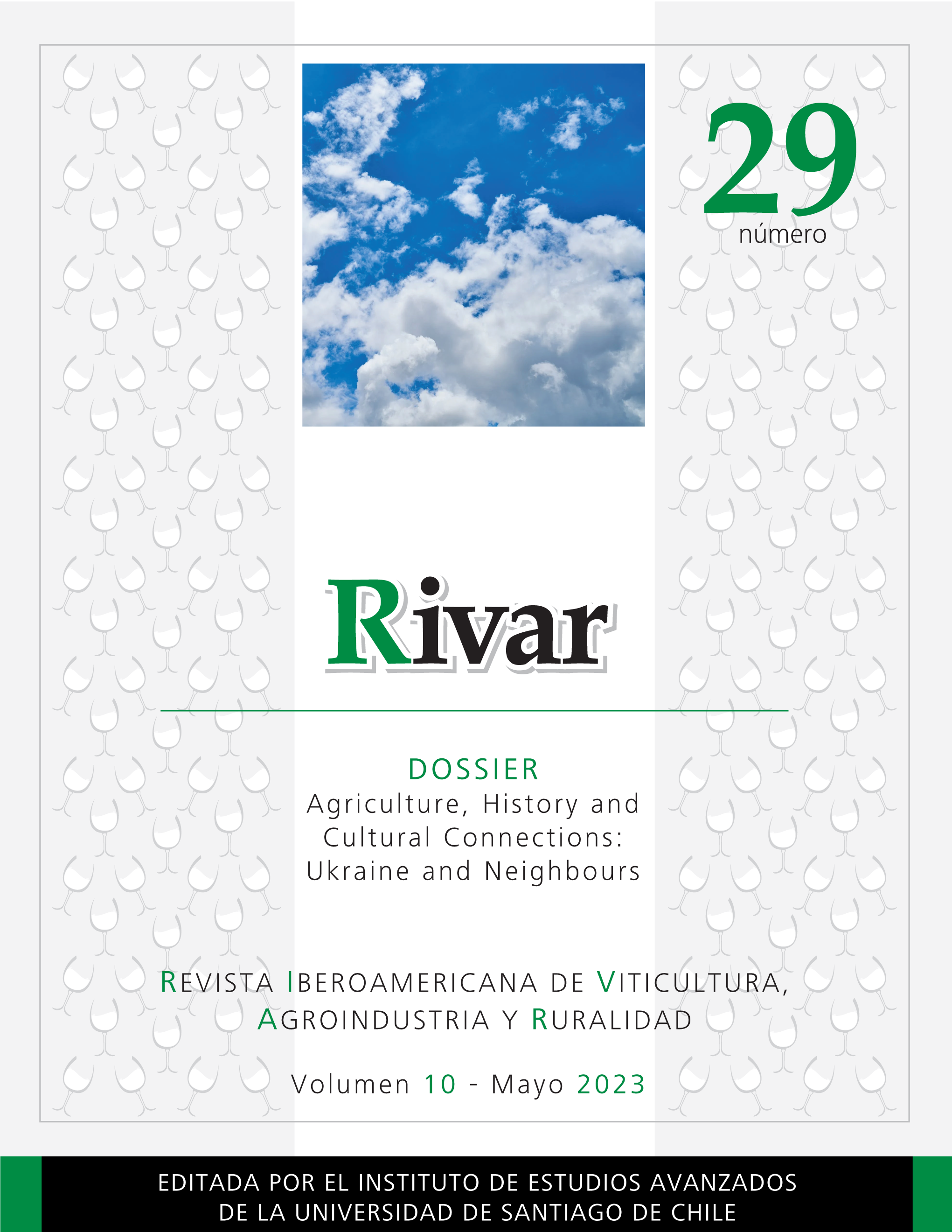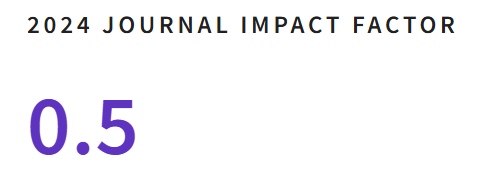Historical Forms of Gradual Transnationalisation of Tourism and the Perpetual Motion Machine behind It
DOI:
https://doi.org/10.35588/rivar.v10i29.5756Palabras clave:
globalización, turismo, compañías multinacionales, economíaResumen
La creciente importancia del comercio internacional está afectando al turismo nacional. Las empresas transnacionales (ETN) son cada vez más relevantes en el sector del turismo. El propósito del artículo es aclarar la magnitud de la transnacionalización del turismo en los procesos económicos mundiales y en países en particular; para ello utilizamos métodos de análisis y estudio de datos estadísticos. Como resultado, es posible señalar que la influencia de las ETN en el sector económico es considerable, y a su vez recíproca. El componente económico de cada país determina el nivel de oportunidades para el desarrollo turístico: en el futuro, el turismo crecerá principalmente en aquellos destinos con desarrollo. Muchos de esos países dependen, en parte, del turismo internacional para sustentar su desarrollo económico. Así, las ETN pueden contribuir al desarrollo socioeconómico de estos paíese, por ejemplo, mediante la inversión extranjera directa y la transferencia de teconología y conocimientos, contratos de gestión o consesión de franquicias.
Descargas
Referencias
Begum, H.; Er, A.C.; Alam, A.S., and Siwar, C.A. (2014). “Perceptions of Tourists Towards the Role of Stakeholders for Tourism Development.” Current World Environment 9(3): 704-712. DOI https://doi.org/10.12944/cwe.9.3.19
Biggs, D.; Biggs, R.; Dakos, V.; Scholes, R.J., and Schoon, M. (2011). “Are We Entering an Era of Concatenated Global Crises?” Ecology and Society 16(2): 27-36. DOI https://doi.org/10.5751/ES-04079-160227
Davydova, О. (2015). “Features for Applying the Innovation in the Development of Tourism Industry in Ukraine.” Bulletin of Taras Shevchenko National University of Kyiv. Economics 7: 65-69. DOI https://doi.org/10.17721/1728-2667.2015/172-7/9
Dwyer, L.; Edwards, D.; Mistilis, N.; Roman, C., and Scott, N. (2009). “Destination and Enterprise Management for a Tourism Future.” Tourism Management 30(1): 63-74. DOI https://doi.org/10.1016/j.tourman.2008.04.002
Ekiz, E.; Öter, Z., and Stephenson, M. L. (2017). “Tourism Development in the Kingdom of Saudi Arabia: Determining the Problems and Resolving the Challenges.” In International Tourism Development and the Gulf Cooperation Council States. London, Routledge: 124-139).
Greenwood, V. and Dwyer, L. (2015). “Consumer Protection Legislation: A Neglected Determinant of Destination Competitiveness?” Journal of Hospitality and Tourism Management 24: 1-8. DOI https://doi.org/10.1016/j.jhtm.2015.04.001
Hassink, R.; Isaksen, A., and Trippl, M. (2019). “Towards a Comprehensive Understanding of New Regional Industrial Path Development.” Regional Studies 53(11): 1636-1645. DOI https://doi.org/10.1080/00343404.2019.1566704
Havrylyuk, S.; Melko, L.; Uvarova, H.; Karyuk, V., and Mihus, I. (2021). “Implementation of the Model of Innovative Tourist Product in Ukraine: Financial and Economic Aspects.” Financial and Credit Activity Problems of Theory and Practice 1(36): 219-232. DOI https://doi.org/10.18371/fcaptp.v1i36.227769
Hornberger, K. and Nevill, H. (2011). “Should We Be Promoting Tourism Sector Investment.” In https://blogs.worldbank.org/psd/should-we-be-promoting-tourism-sector-investment (accessed 20/04/2023).
Karpenko, Y. and Stetsenko, V. (2018). “The Impact of Globalization on the Development of Tourism Management.” In The 16th International Scientific Conference Information Technologies and Management. Riga, ISMA University: 178-184.
Li, G.; Song, H.; Cao, Z., and Wu, D.C. (2013). “How Competitive is Hong Kong Against Its Competitors? An Econometric Study.” Tourism Management 36: 247-256. DOI https://doi.org/10.1016/j.tourman.2012.11.019
Li, G.; Wong, K.K.; Song, H., and Witt, S.F. (2006). “Tourism Demand Forecasting: A Time Varying Parameter Error Correction Model.” Journal of Travel Research 45(2): 175-185. DOI https://doi.org/10.1177/0047287506291596
Lukianenko, D.; Poruchnik, A.; Stoliarchuk, Y., and Liutak, O. (2019). “Globalization of the Tourism Industry: Scales, Levels and Institutional Formats.” Problems and Perspectives in Management 17(2): 563-574. DOI https://doi.org/10.21511/ppm.17(2).2019.44
Peng, B.; Song, H.; Crouch, G., and Witt, S. (2015). “A Meta-Analysis of International Tourism Demand Elasticities.” Journal of Travel Research 54(5): 611-633. DOI https://doi.org/10.1177/0047287514528283
Pleumarom, A. (1999). “Tourism, Globalization and Sustainable Development.” Third World Resurgence 103: 4-7.
Sardak, S.E. (2015). “Modern Problems of Human Resources International Movement: Migration, Tourism, Transit and Professional Movement, Virtual International Movement.” Investytsiyi: Praktyka ta Dosvid 15: 11-14.
Singh, S. (2021). “Time, Tourism Area ‘Life-Cycle,’ Evolution and Heritage.” Journal of Heritage Tourism 16(2): 218-229. DOI https://doi.org/10.1080/1743873x.2020.1766475
Song, H.; Gartner, W.C., and Tasci, A.D. (2012). “Visa Restrictions and Their Adverse Economic and Marketing Implications – Evidence from China.” Tourism Management 33(2): 397-412. DOI https://doi.org/10.1016/j.tourman.2011.05.001
Song, H.; Li, G., and Kao, Z. (2017). “Tourism and Economic Globalization: An Emerging Research Agenda.” Journal of Travel Research 57(8): 999-1011. DOI https://doi.org/10.1177/0047287517734943
Sørensen, F. and Sundbo, J. (2014). “Potentials of User-Based Innovation in Tourism: The Example of GPS Tracking of Attraction Visitors.” In Alsos, G.A.; Eide, D., and Madson, E.L. (eds.). Handbook of Research on Innovation in Tourism Industries. Cheltenham, Edward Elgar Publisher: 132-153.
Stone, R.J.; Cox, A., and Gavin, M. (2020). Human Resource Management. Milton, John Wiley & Sons.
World Tourism Organization (UNWTO). (2016). UNWTO Tourism Highlights. 2016 Edition. In https://www.e-unwto.org/doi/pdf/10.18111/9789284418145 (accessed 20/04/2023).
Yessilov, A.B. (2015a). “Mediation as a Kind of Pre-Emptive Effects in Social Work.” Bulletin of Pavlodar State University Named after S. Toraigyrov 3: 71-77.
____. (2015b). “Social Work with Immigrants in Kazakhstan as Means of Prevention of the Social Conflicts in Society.” Mediterranean Journal of Social Sciences 6(5 S3): 259-264. DOI https://doi.org/10.5901/mjss.2015.v6n5s3p259
Yessilov, A.B. and Kalashnikova N.P. (2015). “Technology of Social Work with Elderly Migrants: International Experience and Kazakhstan Practice.” Advances in Gerontology 5(4): 322-326. DOI https://doi.org/10.1134/s2079057015040062









